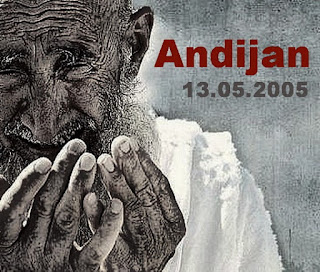Association for Human Rights in Central Asia - AHRCA
is deeply saddened at the news that human rights lawyer Polina Braunerg died
today, on 19 May 2017, in hospital, seven days after being admitted to hospital
after suffering a stroke.
The
Uzbek authorities’ refusal to give Braunerg permission to leave the country
undoubtedly played a role in the deterioration of her health as she was in need
of urgent medical examination and treatment abroad. Over the last three years Braunerg
applied several times to the Ministry of Internal Affairs for an “exit visa”,
permit to exit the country given for two years, a practice inherited by the
Karimov regime from the totalitarian past. But her requests were refused
without explanation. Polina Braunerg complained to the Prosecutor’s office but
in July 2016 her passport was returned to her and the authorities’ threatened
her with arrest if she did not write a statement officially withdrawing her
application for an exit visa.
In
February 2017, under President Shavkat Mirziyoyev Polina Braunerg again applied
for an exit visa but did not get a positive response. Had Polina been allowed to travel for medical
treatment it is possible that she would be with us today and able to continue
her important work.
Polina
BRAUNERG was born on 11 October 1948
in Kazakhstan. She studied law and then
moved back to Uzbekistan and worked for three years as an investigator in the
police department in Almalyk before pending the next 40 years working as a
lawyer. Polina was one of the first
human rights lawyers in Uzbekistan to support the initiative to abolish the
death penalty in Uzbekistan.
In 2002, she met with the UN
Special Rapporteur on Torture Theo van Boven during his official visit to
Uzbekistan, and briefed him on cases of her clients who included victims of
torture, forced sterilization and contemporary forms of slavery, political
prisoners, persecuted human rights defenders and independent journalists. Even when her personal safety was at risk,
she raised issues of human rights violations in Uzbekistan and provided
invaluable information to international human rights bodies. Polina represented
several well-known civil society activists who were subjected to political
repression, including imprisoned human rights activists Fakhriddin Tillayev and
Nuraddin Djumaniyazov, as well as former political prisoners Murad Djuraev and
Muhammad Bejhanov.
She
continued her human rights work, despite the difficult conditions in
Uzbekistan, where she was often subjected to harassment by the authorities
because of her professional activities, as they attempted to isolate her from
the outside world, three times refusing her permission to travel to attend the
OSCE Human Dimension civil society conference from 2014 to 2016. The ban on Polina Braunerg going abroad for
treatment, her isolation, persecution and the pressure on her by law
enforcement agencies led to a serious deterioration in her health.
The
pressure exerted by the Uzbekistani authorities on citizens who dare to speak
out about human rights abuses, including the shameful practice of restricting
freedom of movement, has regrettably not noticeably changed since President
Shavkat Mirziyoyev came to power.
Association for
Human Rights in Central Asia - AHRCA extends its deepest
sympathies to Polina Braunerg‘s relatives, colleagues and friends.











